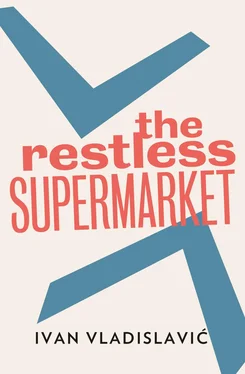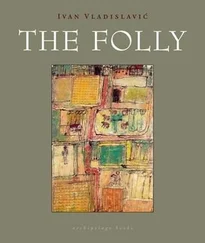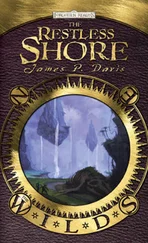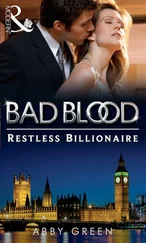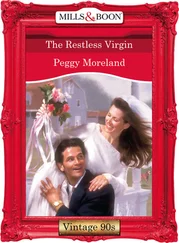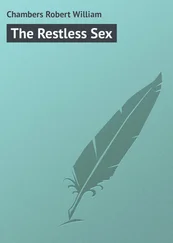I opened the file and the notebook. I sharpened the pencil into the ashtray and returned it to its spot.
It has always been my practice before setting to work, to limber up with a few minutes of basic lexicology, stretching the verbal tendons, if you like, to guard against injury, and so I opened the dictionary at my marker. Since my retirement I had been working my way steadily through the Concise , a leisurely passage, no more than a column a day, lingering over words. Let’s see. Chew, Chianti, chiaroscuro. Chiasmus— I cannot dig, to beg I am ashamed . Chibol. Chibouk. Chibouque may have been better. Chicanery: from the Persian for ‘polo-stick’. As far as chime. Which comes from the same root as ‘cymbal’. Might make a fine graaff (a lexical backflip). When I was nicely warmed up, it was time for a bit of lexical fartlek (to use that unfortunate term, from the Swiss fart , speed, and lek , play): I opened the dictionary at random and put my finger down on Candlemas: feast of purification. I went to feast, quickly, and then rambled through the entry at my leisure. A large or sumptuous meal. Partake of a feast, eat or drink sumptuously. From the Latin festus , joyous. Obviously the same root as festival … I sprinted for that entry, via fertile ~ feudal ~ fictile … too far … back to festival. Here we are, festival, from the med. Latin festivalis , as festive. Festive… from festum , as feast. Bingo. Back to fictile. Made of earth or clay by a potter; of pottery. From the Latin fictilis , f. fingere, fict — fashion. Quick dash to fashion(farthingale ~ fasces ~ no sign of fartlek) and stroll through factio , f. facere, fact — do, make. Must remember to check ‘finger’. But first sprint to fiction. Yes, of course, as fictile. An invented idea or statement, an imaginary thing. A conventionally accepted falsehood. Back to facile: easily achieved but of little value. Of speech, writing etc., fluent, ready, glib. From the Latin facilis , f. facere — do. Take a breather. I turned to my notebook.
‘If you don’t mind my asking, Tearle,’ Spilkin said, as I’d hoped he might, ‘what are you up to?’
I had been dying to tell someone about ‘The Proofreader’s Derby’ (although I wasn’t thinking of it in those terms yet). I was wrapped up in it then, rapt, passionately intent. And Spilkin and I would have to get to know one another, now that we were sharing a table.
‘I’m working on my System of Records.’
‘Gee-gees?’
‘Proofreading.’
That would have stopped many men in their tracks, but Spilkin, give him his due, was a sharp one: ‘Your life’s work?’
I’d never thought of it that way, but he was spot on. The story of my life. I nodded.
‘Tell me about it then.’
‘Well, in this file here, which is just one of several dozen, are the fruits of a long career — I won’t say a distinguished one, in the ordinary sense of the word, but certainly respectable. My documentation, my papers. You’ll see that many of them are clippings of one sort or another, from newspapers mainly, but also magazines and journals, and books. Those are the photostatic copies, mind you, or the handwritten quotations; I would never be so barbarous (from the Greek barbaros , foreign) as to tear a page from a book. And then also gazettes, programmes, handbills, posters, wedding invitations, menus. I’ve got some unusual things, collector’s items. This here is a label from a tin: “Pot’ o’ Gold petit poise.” Now I’m busy transcribing the important parts of these documents into this notebook here — also one of many, twenty-six to be precise, one for each letter of the alphabet — in a form that allows for easy reference without losing the essence. I never had the time to collate all this raw material while I was employed, although I was gathering diligently for thirty years and more, and so I’m devoting my retirement to the task. Keeping the grey matter supple, too. They say it’s as important as taking care of the body, you know.’
‘Who’s that?’
‘Excuse me?’
‘Everyone’s always pointing fingers at “them”. “They” said this and “they” did that. Who do you mean exactly?’
‘Who do you mean by “everyone”?’ I countered.
‘People in general.’
‘Well, that’s who I mean by “they”.’
‘No, it’s not.’
‘What are you driving at?’
‘Americans. That’s who you mean. Yanks. Specifically Californians. Jane Fonda and Sylvester Stallone.’
‘Who?’
‘They’re the ones who’re sprouting this stuff about the mind and the body as if it was all their idea, as if it didn’t go back to the Greeks!’ Mrs Mavrokordatos’s ear pinkened. ‘The gymnasium, a noble institution founded for the social good, issues in the naked commercialism of Jim’s Gym.’
I must have looked nonplussed, because he laughed out loud and said: ‘Cheer up, Tearle. Just a bit of verbal sparring, just pulling your leg, good for the circulation, didn’t mean to distract you from your story. So, what are the important parts of these documents you were talking about?’
In retrospect, this episode strikes me as rather unkind, revealing a streak of nastiness in Spilkin I would have been wise to acknowledge. But if I looked flushed and flummoxed then, it was not that I had taken offence, nor even that I found the sparring strenuous, but a simple expression of pleased astonishment that we appeared to understand each other so well. I went on happily.
‘They’re examples. Various kinds of things. Literals, misspellings, inversions, anacolutha, haplographies and dittographies, which are really two aspects of the same blindness. There’s a fine line between proofreading and editing, they say, although the proofreader worth his salt will know exactly where it is. Homonyms (dog, dog). Homophones (some, sum). Puns. You would be surprised how many typographical errors are the result of unconscious identifications. The odd apocope.’
‘You mean mistakes.’
‘No, I mean corrigenda: things to be corrected, especially in a printed book. From the Latin. Not the same as “mistakes” at all, once you know the ins and outs. People make mistakes. Their fingers slip, their concentration lapses. And what they leave behind are not mistakes, but corrigenda.’
He was looking at me a little sceptically. ‘Enlighten me. An example. I’m slow on the uptake.’ Which he was not.
I assembled a typical triad: a cutting from the file, an index card from the box and an alphabetical entry in the notebook, and turned them all towards Spilkin.
‘Here’s one I’ve already processed — see the red cross? This was one of my first finds. I came across it in the Pretoria News of 7 January 1956. An article on poultry farming. Corrigenda in the press were relatively few and far between then and I was new at the game, so I was especially pleased to capture it.’
He examined the clipping. The headline read: Feathers Fly As Poultry Farmers Meet. The corrigendum was in the third paragraph: ‘Mr Goosen refused to anser questions about the price of eggs.’ Spilkin chuckled when he got there, to show that he had spotted it.
‘I collected corrigenda haphazardly for a good fifteen years, by which time I had quite a pile of them, even allowing for the relative scarcity of material. Four or five files’ worth, I should think. In the early seventies, I made my first attempt to establish order by developing a catalogue. You see that I transferred the relevant word − in this instance, “anser” — onto an index card. This number here records the location of the original document in the files — the N means “newspaper clipping”. And this T in the corner stands for “typographical error”.
Читать дальше
